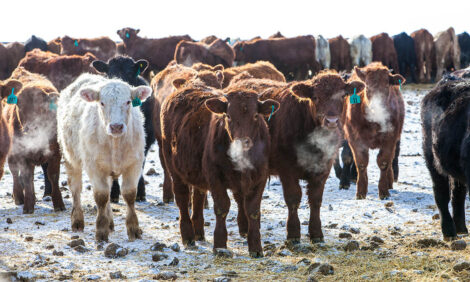



Sustainable Beef Gathers Pace
ANALYSIS - As the push for sustainable beef gathers pace, the industry could look to Argentina for ideas to make beef less burdensome.Global agri-foods giant, Cargill, and Loblaws, Canada’s largest food distributor, have both been linked to lofty sustainability aspirations this week.
Using the guidance of Kennedy and Coe consultants, Cargill aims to improve resource management.
“It is critical to improve the way we manage resources,” said a Cargill spokesperson, adding: “This is a step in the right direction.”
Meanwhile, Loblaws followed McDonald’s, pledging to source verified sustainable beef, Alberta Farmer has learned.
In doing so, Loblaws adds to its sustainable seafood programme, although no date for sourcing exists, unlike the McDonald’s 2016 target.
This has been accompanied by revealing insights into more efficient grazing, presented by the National Institute for Agriculture and Livestock Technology (INTA).
Dentures in cattle and a new prickly forage alternative could hold answers for those wanting sustainability to start from the bottom up.
INTA data shows livestock require 50 per cent less water when fed prickly cactus fruit and that false-teeth for cows mean more productive lives.
Cattle with false teeth live longer and produce more calves, with no negative impact to body weight, pregnancy rates and general condition, said INTA researchers.
Managing regular calf production is vital if beef’s sustainability is to improve, livestock sustainability consultant Dr Jude Capper has been telling farmers.
She calls on farmers to achieve a target of one calf, per cow, per year.
Earlier, the principles and criteria for sustainable beef were unveiled in Sao Paulo, Brazil, at the Global Roundtable for Sustainable Beef Conference.
This was an attempt to provide a globally relevant definition of what sustainability is.
Not without critics, the Roundtable is working across the industry to change the entire supply chain.
One such member is the Canadian Cattlemen’s Association, which is working on a life cycle assessment to look at where improvements are needed.
Carbon emissions, water and energy use are important, said Manager of Environment and Sustainability, Fawn Jackson.
She told TheBeefSite that other metrics, such as biodiversity impact and carbon sequestration, will be included.
Michael Priestley
News Team - Editor
Mainly production and market stories on ruminants sector. Works closely with sustainability consultants at FAI Farms



